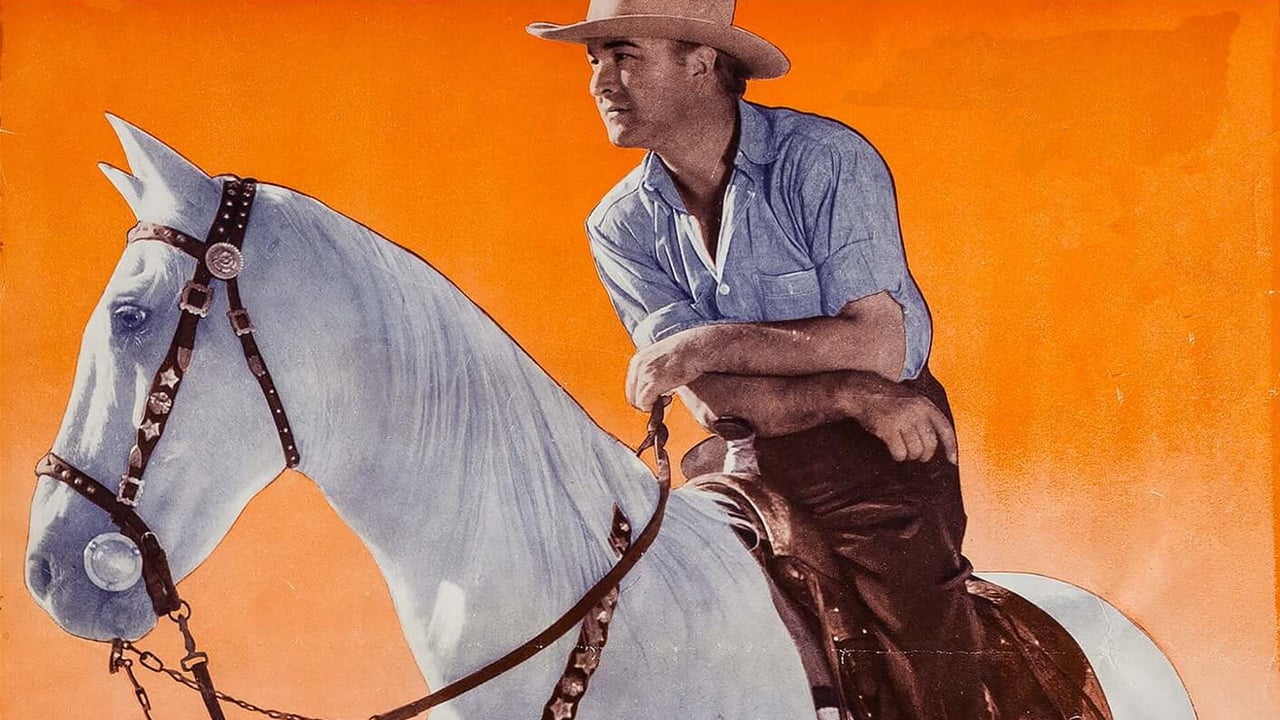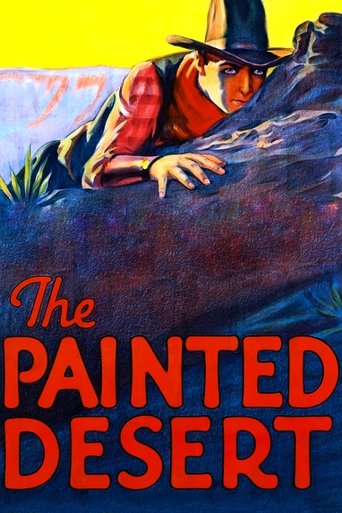

Too much of everything
... View MoreSimple and well acted, it has tension enough to knot the stomach.
... View MoreGo in cold, and you're likely to emerge with your blood boiling. This has to be seen to be believed.
... View MoreThis is one of the few movies I've ever seen where the whole audience broke into spontaneous, loud applause a third of the way in.
... View MoreThe Painted Desert (1931)Two wondering cowpokes, Cash Holbrook (William Farnum) and Jeff Cameron (J. Farrell MacDonald) ride up on an abandoned wagon, the victim of an Indian attack. Nobody is alive except for a baby. The two quickly come to the little fellow's rescue, but it doesn't take long before they're arguing over what to name him and where they should settle down. Guns are even drawn and Cash leaves in a huff with the baby.These two become bitter rivals years later when young Bill Holbrook (William Boyd) and Jeff's daughter, Mary Ellen Cameron (Helen Twelvetrees) become adults. Cash sneaks his cattle onto Jeff's land to drink from his water and a gun battle almost ensues.This is where a wondering stranger rides onto the property, Rance Brett (Clark Gable) who offers to be an extra gun for Jeff and Mary Ellen.Meanwhile, Bill see's the ridiculousness of this feud. Bill has been trying to talk Cash into making peace with Jeff. He's spotted some ore deposits on Jeff's land and feels that together they could make a huge profit working together, while fighting each other, everyone looses. This is an old western with old stage and silent era acting styles that come off more funny to watch with today's eyes. This is one of Clark Gable's first talkies, and you know he's the heavy in this movie and frankly is the most three dimensional character in the whole film. You know Gable has a big future ahead of him and he is the reason for watching this. William Boyd, who later is known for TV's Hopalong Cassidy is your typical stiff blond hero in all this.
... View MoreTwo prospectors come across an abandoned covered wagon - abandoned, that is, except for a baby. They have a disagreement, one stays to raise the baby and the other leaves, leaving his partner holding the bag, er, baby. Fast forward twenty-odd years, and the baby grows up to be William Boyd. The two prospectors are deadly enemies, and the grown-up baby tries to bring them together. Added bonus; the one who left now has a pretty daughter, a development not lost on the boy.The story is fairly interesting and could have been more so if the movie hadn't been cannibalized and crucial scenes removed for other movies. Several reviewers have mentioned some scenes have been taken out and with them much of the excitement was drained from the film. In addition, the acting is slow and deliberate giving the movie an artificial, stilted feel and will catch modern audiences off balance. On the whole, though, it is worth a look due to the peculiar nature of the subject matter, and to see Clark Gable as a bad guy minus his customary charm, and William Boyd before he hit the bigtime as Hopalong Cassidy.
... View MoreAn inferior, low-budget western, whose only distinction is a very early part played by Clark Gablehe's not a good guy. This small villainy he carries of fairly well, but the movie's really not about him. The main star is the incredibly wooden William Boyd in his pre-Hopalong Cassidy days. What can I say about him? He occupies space. He makes John Wayne look hyperactive. I saw him once when I was a boy; he was impressive, wearing his black outfit and white-haired and riding a white horse in a parade, brought to Kansas, I think, by the dairy that sponsored his television show, which I never saw. Anyway, the story starts out amusingly, with two grizzled cowpokes arguing over who gets to keep an orphan boy they discover, but then the story lapses into a feud between the two men, and Bill falls for the pretty daughter (Helen Twelvetrees) of the cowpoke who didn't raise him. The Gable character, also attracted to the girl, tries to accelerate the feud and destroys Bill's tungsten mine, but to no availhe doesn't get the girl. The dialogue is stilted, the continuity bumpy, and only the repeated shot of the street outside the barn-sized door of the tavern is really effective.
... View MoreConsidering the release of this film on the early threshold of the talkie film era, and with the hindsight of a couple hundred Western films under my belt, I was rather surprised by the originality of some of the scenes presented here. The opening sequence almost suggests that it IS a silent film, until broken by the cry of an abandoned baby in a covered wagon, discovered by a pair of codgers named Cash Holbrook and Jeff Cameron (William Farnum and J. Farrell MacDonald). At odds over who'll bring him up, Cash takes the baby and heads West with 'Bill'.Fast forward some twenty years, the baby has grown into Bill Boyd, or at least his character, Bill Holbrook. At the time of the movie, Boyd at age thirty six looks somewhat heavier around the middle than he would as his alter ego, Hopalong Cassidy. Bill attempts to get the former friends to reconcile their disagreement that has grown increasingly bitter over the years. When Bill discovers tungsten ore on Cameron's property, he throws in with the Cameron's to develop a mining operation and get closer to Miss Mary Ellen (Helen Twelvetrees).Most self references to "The Painted Desert" use the opportunity to promote the movie as the first speaking role for Clark Gable. The actor acquits himself reasonably well, though he's given the task of being a no good slimy polecat who attempts to further undermine the relationship of the former partners, and derail the budding romance between Bill and Mary Ellen. You can tell his acting is a bit forced, especially in the final confrontation with Bill when he outs himself.As others have mentioned, the lack of typical Western style action is apparent, but what makes the film difficult for a lot of viewers is that every... spoken... word... and... sentence... is... followed... by... a... pause... that's... so... looooong. With normal dialog, the film probably could have clocked in at under an hour. To my mind though, the final scene presenting the showdown between the senior Holbrook and Cameron is entirely original and one I've never seen before. Realistic too, in that handguns of the era depicted were never accurate beyond a distance of about twenty five feet. I won't spoil it for you, though Bill Boyd figures in the outcome. Let's just say he'll be a little late for his wedding.
... View More